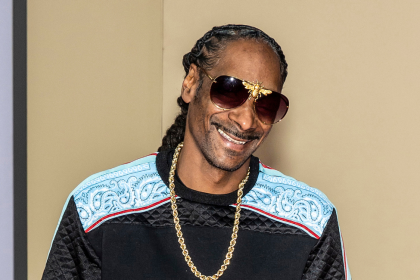The announcement of Snoop Dogg‘s performance at President Donald Trump’s inauguration sent shockwaves through the community that watched him rise from Long Beach to global stardom. Cultural critic Kevin Powell’s recent TMZ Live appearance addressed what many view as an unexpected pivot from an artist who once represented resistance and authenticity.
The price of legacy
For those who grew up watching Snoop’s evolution from Death Row Records to mainstream success, his decision to perform at the inauguration strikes a particularly complex chord. Powell‘s critique resonates with many who remember Snoop’s early advocacy and his role in shaping West Coast hip-hop culture. The decision appears especially jarring given Snoop’s previous stance against Trump’s policies and rhetoric.
More than just a performance
The controversy extends beyond a single performance, touching on deeper questions about artistic responsibility in an era of heightened political consciousness. Powell’s criticism highlights how artists who emerged from specific cultural movements carry unique obligations to their original supporters. For those who witnessed hip-hop’s transformation from community expression to global phenomenon, the stakes feel particularly high.
The debate has sparked conversations in barbershops, social media forums and community spaces about the evolution of hip-hop’s pioneers and their relationship with political power. Powell’s assessment points to a growing concern about the commodification of culture and the price of mainstream acceptance.
Country artist Carrie Underwood’s participation in the inauguration ceremony has also drawn criticism, but Snoop’s involvement carries additional weight given his historical role as a voice for community empowerment and social justice.
A shifting landscape
The resurfaced 2017 footage of Snoop’s previous criticism of Trump supporters adds another layer to the discussion. For many who grew up during hip-hop’s golden era, this apparent contradiction represents more than just a change of heart; it symbolizes a broader shift in how artists navigate fame, fortune, and responsibility.
The controversy touches raw nerves among those who remember when hip-hop served as a mirror for community experiences and aspirations. Powell’s critique echoes sentiments from many who view this performance as more than just another gig – it’s seen as a departure from the values that helped build Snoop’s career.
As conversations continue about the role of artists in political spaces, this moment serves as a reflection point for a generation that witnessed hip-hop’s journey from community voices to global influence. The discussion extends beyond mere entertainment, questioning how cultural icons balance their roots with their evolving public personas.
The ongoing dialogue reveals deeper questions about loyalty, values and the expectations placed on artists who emerged from specific cultural movements. Many watch with interest to see how this chapter in hip-hop history unfolds, and what it means for the legacy of one of its most recognized figures.















